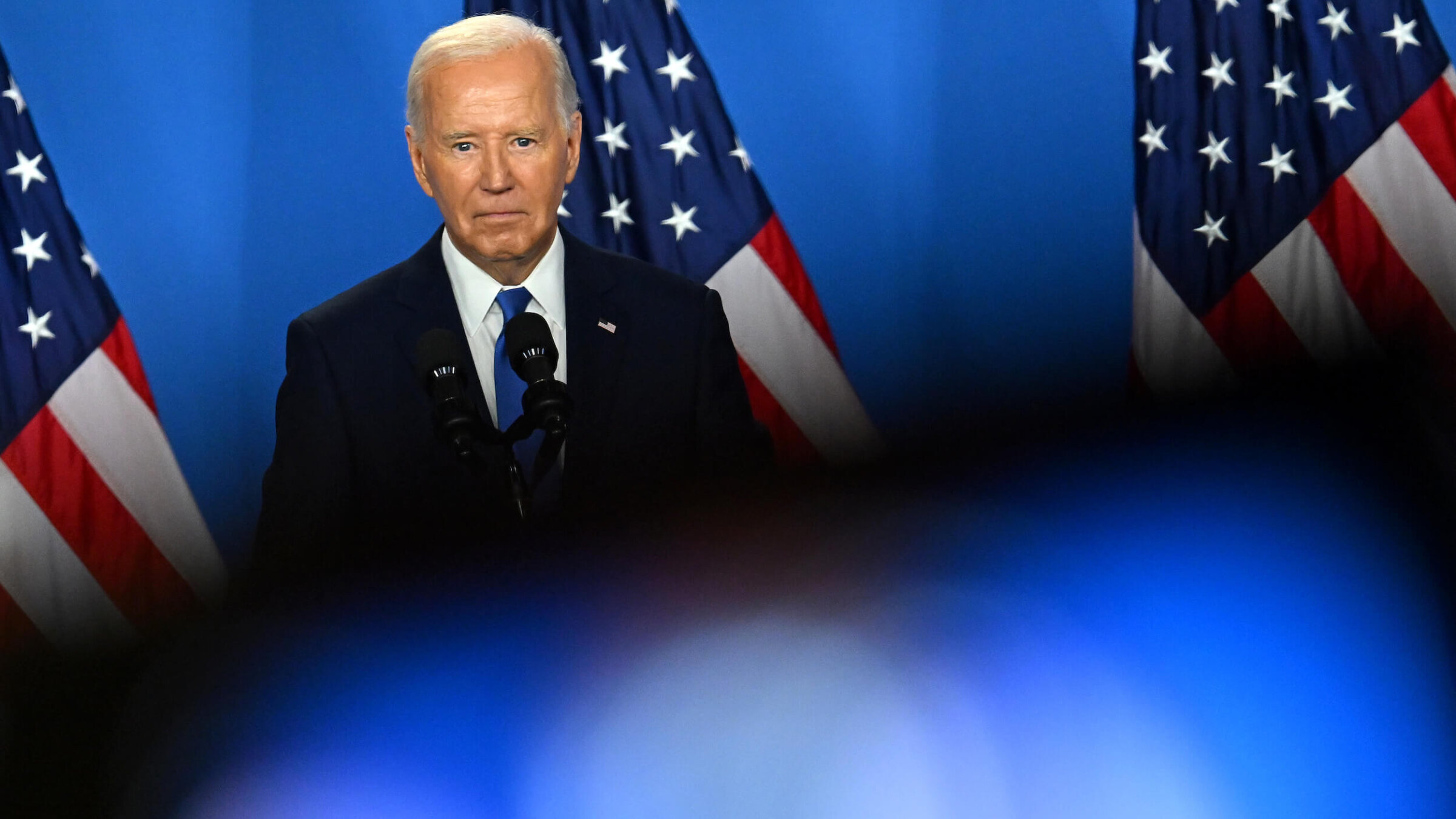I’m an octogenarian rabbi. Biden should learn from this Jewish idea about strength
Hebrew has multiple words referring to different kinds of strength. At this critical juncture, they might give the perspective the president needs

President Joe Biden speaks at a press conference during the NATO Summit in Washington, D.C. on Thursday. Photo by Graeme Sloan/Bloomberg/Getty Images
An open letter to the President Joe Biden:
Although we’ve never met, we have much in common.
We’re both octogenarians. I faced a major life decision some years ago — much like that which you face now — on whether to step back from the life of service I so loved as the rabbi of a major Jewish congregation.
My purpose in writing this letter is not to join in with the chorus of political pundits eager to evaluate whether you should continue in your presidential campaign or not. It is, instead, to suggest a counterintuitive idea.
Heroism in America, and elsewhere, is often associated with having the courage to stay the course, overcoming all obstacles that lie ahead. After all, withdrawal is seen as a sign of weakness, of defeat.
But the reverse may be equally true. There is heroism in stepping back. At times, stepping back can be a form of triumph — a way of actually stepping up.
This is the difference between the Hebrew term koach, which refers to a strength related to vigor and power, and gvurah, which means also strength, but a kind of strength of will that can be expressed through relinquishing, letting go.
When my children were younger, they asked: if God is everywhere, how can there be room for people in this world? Jewish mystics suggest that when God created the world, God then withdrew, or contracted, leaving room for humankind to step in. The world functions because an all-powerful God — while forever remaining present — showed strength and wisdom by stepping back.
This strength expressed in stepping back was reflected gloriously by Dr. Martin Luther King, Jr. in his last speech, which I have always felt was his most stirring: “I’ve been to the mountaintop.”
“I’ve seen the Promised Land,” King said, “I may not get there with you. But I want you to know … that we … will get to the promised land!”
In his own way, he was illustrating the importance of making way for new leadership. Unfortunately, for King and for all of us, his work was cut short by tragedy. How meaningful it would be if we, in life, would express similar humility and follow suit.
King’s words showed us there is strength in recognizing that to mentor others is a blessing, as is the awareness that we are not the only ones who can lead. One of the greatest prides one can feel is in uplifting successors who reach even higher.
Mr. President, you’ve often said you feel great pride in leading our nation for three and a half great years. Should you now decide to step away, you will teach the world an invaluable lesson: There are moments where heroism is found in not holding on. In knowing when to let go.
Rabbi Milton Steinberg, the late, great theologian, wrote about the importance of holding on to every moment of life. But, he warned, it is essential not to hold too tight. Yes, we should hold on to our youth, our children, our jobs, but inevitably we must recognize that we will grow older, our children will mature, and our jobs do not last forever. And so, Steinberg suggested, when holding on, hold loosely; embrace, but with open arms.
I cannot tell you what the right decision is. But what I’ve learned from my own experience is that if one decides to let go — as I did — it is not a sign of weakness, but of strength. It is living the message from Pirkei Avot, the book of ethics: “It is not for us to complete the task, nor are we free from working to make it happen.”
With blessings,
Rabbi Avi Weiss























